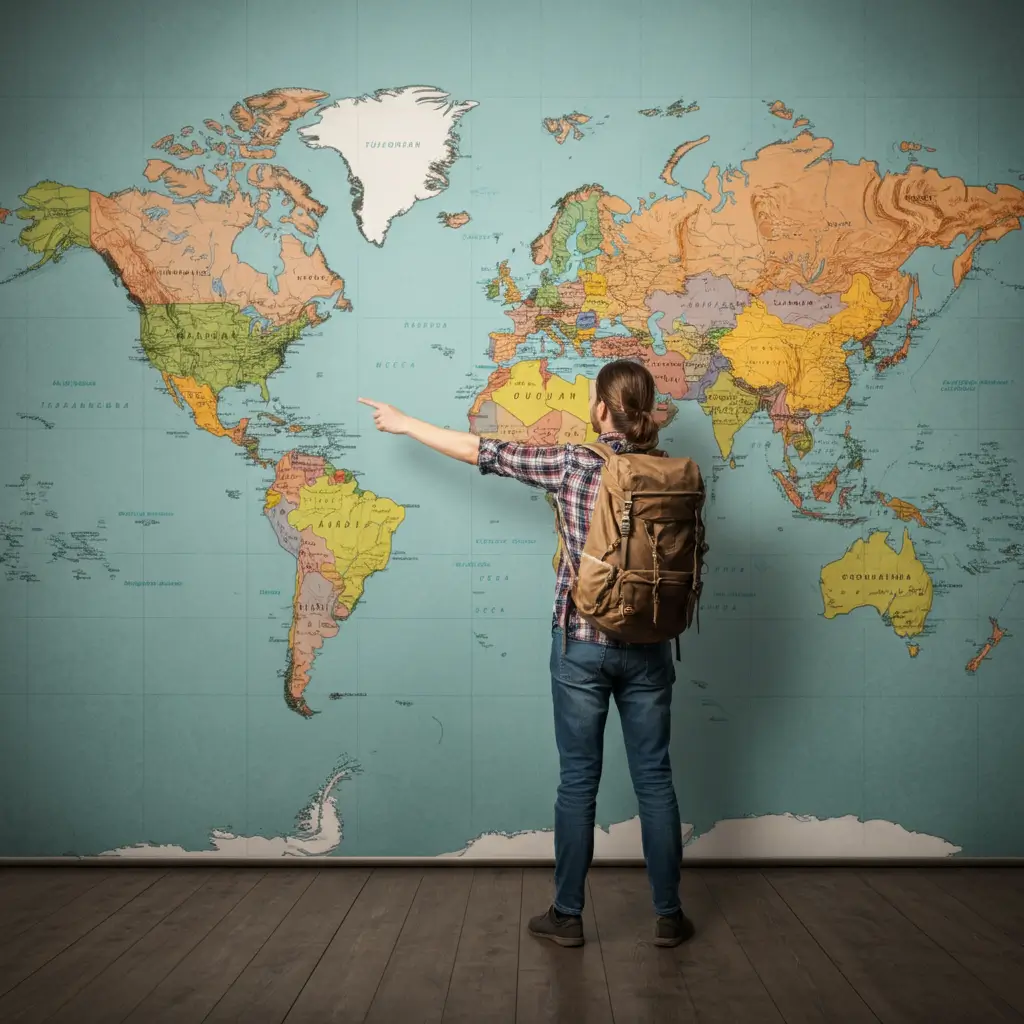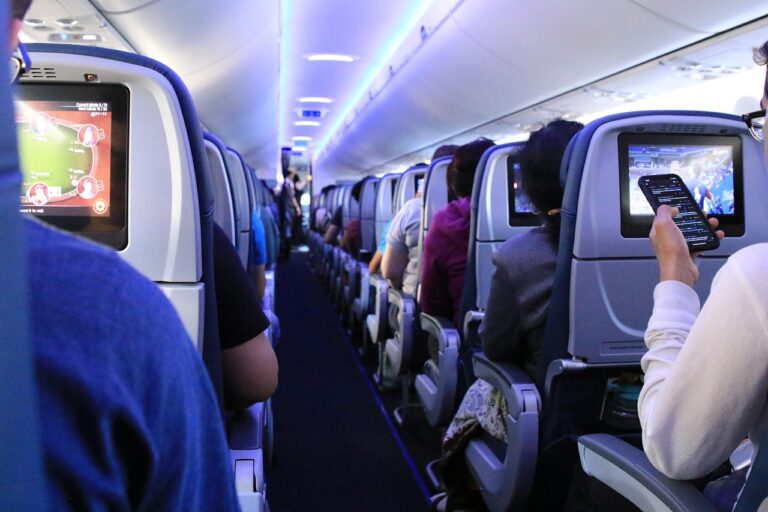Mind the Culture Gap! Travel Etiquette Tips for Americans Exploring the Globe

Traveling opens doors to new cultures, traditions, and unforgettable experiences. However, exploring the globe without understanding travel etiquette can lead to cultural missteps that may leave a bad impression. For Americans accustomed to their own social norms, adapting to different cultural behaviors abroad can sometimes be challenging. But it’s also an opportunity for growth. Understanding how to respect customs, adjust behaviors, and approach new environments with sensitivity ensures smoother travel experiences and fosters meaningful connections. This guide will show you how to bridge the culture gap, avoid faux pas, and become a more culturally aware traveler. From tipping customs to personal space etiquette, we’ll help you prepare for respectful and enriching global adventures. Keep reading to discover key tips for immersing yourself in new cultures while representing your own with grace.
Why Travel Etiquette Matters When Exploring Cultural Differences
Understanding the Impact of American Habits Abroad
American norms like frequent small talk, tipping in restaurants, or personal space preferences may not align with global standards. For instance, while tipping is a norm in the U.S., it can be seen as offensive in countries where service charges are automatically included or where employees perceive it as unnecessary. Similarly, Americans’ tendency to initiate casual conversation might seem overly familiar in cultures that value formality.
By learning how these habits translate abroad, you can avoid awkward encounters. Researching cultural norms before stepping off the plane is crucial. For an insightful read on how to avoid common international travel mistakes, visit the article 10 Common International Travel Mistakes and How to Avoid Them. Respecting these differences helps bridge cultural gaps and makes interactions smoother—from dining at a bustling Tokyo restaurant to riding a Parisian metro.
The Role of Respectful Travel in Cross-Cultural Encounters
Respectful travel isn’t just about actions; it’s about mindset. Engaging with local customs reflects appreciation for the culture you’re visiting. For example, learning to greet people in the local language or researching local dining manners can make a significant difference. A thoughtful traveler who values cultural understanding fosters positive connections and even receives a warmer welcome from locals. Curious about how to adopt a more thoughtful approach while traveling? Check out How to Be a Thoughtful Traveler Abroad.
When you embody respect and politeness abroad, you contribute to breaking stereotypes and fostering mutual understanding.
Key Travel Etiquette Rules for Americans Abroad
Researching Customs and Manners Before Departure
Preparation is the most critical step to ensure culturally sensitive travel. Before arriving at a destination, research its customs, societal norms, and mannerisms. For instance, many Asian countries remove shoes before entering homes or temples, while in European countries, punctuality is deeply valued—not just in business but in casual social interactions.
Guidebooks, travel forums, and travel blogs can provide practical insights into what’s considered polite or rude. Understanding these rules doesn’t just help you fit in; it demonstrates genuine respect for a host’s traditions. To explore unique customs and behaviors around the world, consider exploring highlights of Green Getaways Done Right for responsible travel tips.
Navigating Language Barriers With Courtesy
Language barriers can be daunting, but a little effort goes a long way. Learning a few essential phrases such as “hello,” “thank you,” and “excuse me” in the local language can make a world of difference. It not only helps you get by but also shows that you respect the local culture. Carry a translation app or phrasebook to bridge the gap further. Being patient and smiling through misunderstandings shows good etiquette too.
Acknowledging the locals’ efforts to communicate, even when their English isn’t fluent, is equally important. Respect and understanding will often help you overcome even the toughest language barriers.
Handling Social Interactions Abroad Respectfully

Public Behavior and Personal Space Differences
Social norms vary drastically across the globe, especially in public spaces. For instance, talking loudly in public may be common in the United States but could be seen as disrespectful in countries like Japan, where silence is often considered polite. Similarly, personal space expectations differ; standing too close in places like Scandinavia might feel intrusive, while in parts of the Middle East, a small invasion of personal space could be standard.
Watch how locals behave in public settings and mirror them to avoid standing out in a negative way. Observing and respecting these unwritten rules will help you adapt to new environments with minimal friction.
Tipping Customs Around the World
Tipping can be a confusing affair for travelers navigating multiple countries. While tipping generously is second nature for many Americans, it can come off as over-the-top or even offensive in some parts of the world. For example, in Japan, tipping is seen as unnecessary and at times disrespectful because good service is simply a built-in expectation.
Conversely, in countries like Mexico or Egypt, service staff might heavily rely on tips for their livelihood. To understand how different regions interpret gratuities, travelers can research destination-specific tipping guidelines. For more tips on smoothing out common tourist behavior mistakes, explore 7 Things Tourists Do That Annoy Parisians. This exploration is handy for avoiding pitfalls when dining or sightseeing.
Avoiding Common Cultural Faux Pas
Dress Codes and Modesty Standards
Dress codes vary widely based on tradition, climate, and religion. Ignoring local modesty standards can unintentionally offend or even lead to restricted access to specific sites like temples, mosques, or churches. For instance, while wearing shorts and tank tops might be acceptable in certain tropical destinations, they’re inappropriate in more conservative countries like Morocco or Egypt. Identifying the right balance between your style and the culture you’re engaging with ensures respect and personal comfort.
Dining Etiquette in Different Cultures
Dining is often where cultural differences shine most distinctly. For instance, using the left hand to eat in some parts of Africa or the Middle East can be seen as impolite due to cultural beliefs. Similarly, bread isn’t something to be cut with a knife in French culture; it’s broken by hand. Familiarize yourself with these nuances before sitting down for a meal abroad, and don’t hesitate to observe locals as they dine.
Becoming a Culturally Aware Traveler
The Value of Observing Local Norms
One of the simplest ways to gain cultural insight is by watching how locals go about their day. From casual greetings to the tone of public conversations, local actions reveal what’s considered appropriate or respectful. Observing behavior can guide you when words might fail, especially in unfamiliar environments. Over time, you’ll feel more in tune with your surroundings.
Building Connections Through Cultural Understanding
Spending the extra effort to learn about local history or traditions deepens the quality of your travel experiences. Walking into a neighborhood with context about its festivals, beliefs, or art creates more genuine exchanges with locals. By fully immersing yourself in their traditions, you open the door to friendships that often transcend language and distance.
Adapting to Customs While Balancing Your Own Cultural Identity
When to Adapt and When It’s Okay to Be Yourself
Finding the balance between adapting to norms and staying true to your values can feel like walking a tightrope. Situations like sharing a pork-heavy meal when you’re vegan or drinking alcohol in cultures where hospitality revolves around a celebratory toast can be tricky. Respectfully declining while appreciating the intention behind certain practices helps maintain authenticity without creating tension.
Handling Mistakes With Grace and Humility
No matter how prepared you are, mistakes happen. Whether you accidentally use the wrong hand to greet someone or misinterpret cultural symbols, the key is to apologize and move forward. Many locals appreciate travelers who show humility and good humor despite small blunders. Frame every faux pas as another teaching moment in your cultural immersion.
The Long-Term Benefits of Respectful Travel
Fostering Mutual Understanding and Acceptance
Respectful travel has an enduring impact on both travelers and hosts. It breaks down stereotypes and encourages cross-cultural respect. The memory of a shared smile or a friendly exchange during a market visit can create ripples of understanding that last long after the trip ends.
How Cultural Awareness Enhances Future Travel Plans
Once you’ve embraced cultural awareness, future trips become easier to plan and execute. By reapplying habits like researching cultural norms and observing locals, you pave the way for enriching repeat journeys.
Reflecting on Your Cultural Awareness Journey
Deep reflection on your travel experiences helps you fortify the lessons you’ve learned during your trips. Keep a journal of your favorite cultural moments, or recount instances where your manners won someone’s appreciation. Stories of encountering a new cultural perspective shape who you become, including your worldview.
Cultural differences should be celebrated, not feared. They enrich your understanding of the globe and the people you meet along each step of your travel experience. Respectful travel, rooted in thoughtful preparation and genuine curiosity, isn’t just about avoiding mistakes. It’s about forging deeper relationships and gaining fresh perspectives about the world while broadening your own horizons. Use conscientious travel etiquette as your passport to cultural immersion, and you may find that the biggest takeaway is the transformation within yourself.






